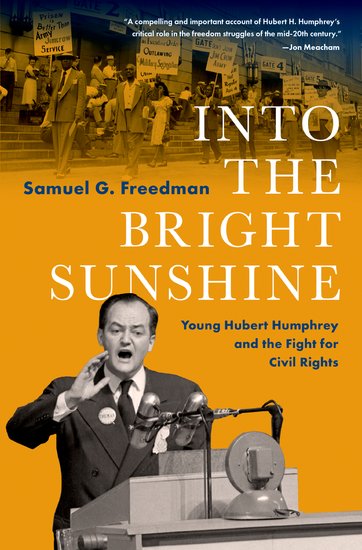Buffeted by hoots and catcalls, a civil rights lawyer named George Vaughn approached the lectern at the 1948 Democratic National Convention (DNC) in Philadelphia. He was one of only 17 Black delegates and alternates among nearly 1,500 white ones in the arena. As the assemblage already knew from hours of preliminary battling, Vaughn was about to call for the expulsion of a particular group of white attendees: the delegation representing the segregationist faction of the Mississippi Democratic Party.
“We … recommend that the delegation from the State of Mississippi be not seated by reason of the acts of the convention held in that state,” Vaughn said, citing resolutions adopted by the state party at its meeting three weeks earlier. These measures bound the delegates to oppose President Harry S. Truman and a civil rights plank, or declaration, in the party’s platform unless both were weighted down with the formal approval of states’ rights—the concept that Southern states were permitted to impose racial inequality regardless of federal law. If these demands were not met, the delegates would walk out of the convention.
Undeterred by the angry response from other Southern delegations, Vaughn continued, “Harry S. Truman has not advocated a single proposition in his civil rights program but what is contained in the Constitution.” So furious were the segregationists at these words that “an air [of] tension, in which physical violence lurked around a corner, hung over the great hall as [temporary convention chair Alben] Barkley pounded his heavy gavel, shouted and [pleaded] for order,” as the St. Louis Post-Dispatch reported.
Vaughn’s attempt to oust Mississippi’s segregationist delegates ultimately failed. But his public repudiation of the Democratic Party’s white supremacist elements foreshadowed a similar push that took place 16 years later, at the 1964 DNC. An insurgent, racially integrated slate of delegates representing the Mississippi Freedom Democratic Party and embodied most indelibly by sharecropper-turned-activist Fannie Lou Hamer took its cause to the convention floor in Atlantic City and the television networks broadcasting nationwide. The dissidents demanded that, in keeping with President Lyndon B. Johnson’s bold progress on civil rights, the commander in chief and his loyal delegates oust the official, all-white Mississippi delegation with its defiant commitment to the Jim Crow system. Subsequent reforms forbade all-white delegations from 1972 onward.
